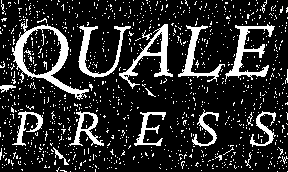|
Poems from Arrows in the Gale...
Anniversary I
Along the flocks of clouds that browse the firs
The moon goes like a mystic grail of light,
Between the bowed heads of the worshippers.
The branches of the oaks swing with a flight
Of censers and the poplars sing a psalm
Of ancient glory to the holy night.
Peace lies upon our roof, and in my palm
Your hand unclasped lies restful and secure,
And everything is strong and white and calm,
For we are still in love and are still poor.
Scientist
You have said Amen to all unexpected truths: You have broken through and brought down the arches of the eternal incantations of Nature, giving names and features and scopes and actions to their dismembered debris, making equal in the distinction of their separate lineage the spine of a steel wheel to the framework of the Universe; the dregs of a chemical precipitate to the astral coze of the Milky Way; the pollen of the edelweiss on the brow of Mount Blanc to the dandruff on the gown of the Lord Chief Justice.
Aye, and of a monkey you made man.
Afterword From Arrows in the Gale...
An arrow moves one way, the mind another. True, when the mind
exercises caution and when it is proceeds on a line of inquiry
it goes straight, not wavering, to its target.
—Marcus Aurelius, Meditations
This volume comprises the collected poems that Arturo Giovannitti wrote in English. First published in different format and organization by E. Clemente in 1962 and then reissued in 1975 by Arno Press, Giovannitti’s work bears witness to an important era — both culturally and politically. Giovannitti’s extremely long and loose Whitmanesque lines, as well as his eulogy “The Death of Flavio Venanzi,” “The Bankrupt’s Suicide” and “Scientist,” provide a key piece in understanding the development of the prose poem in the United States. Around the same time Giovannitti was writing these works, T. S. Eliot and Ezra Pound dabbled with their very short-lived prose poem experiments. Sherwood Anderson was also elaborating on Whitman’s prosaic lines and natural speech cadences. And Gertrude Stein was gathering a fusion of poetry and prose into something the world had not quite seen before.
Giovannitti made prominent, but largely forgotten, contributions to American arts and letters during the first part of the twentieth century, well before Italian-Americans were recognized as making valid contributions to the cultural life of the United States — at least outside the realm of theatrical performers, singers and musicians. This cultural amnesia may be due in part to Giovannitti’s radicalism and pacifism, in part to him not exactly living as a choir boy throughout his life and in part due to his reluctance to promote himself as a writer. Giovannitti, I suspect, would not have wanted to portray himself as a poetic innovator nor would he have wanted to write sophisticated, intellectual poetry. His mission was to sing to those slaving away in factories and sweatshops, to sing to those who (if they were lucky) could read his poems in various socialist newspapers and journals (but who were more likely to have had someone read Giovannitti’s work to them or possibly heard him speak at a union meeting or political gathering). Giovannitti’s political mission shaped his poetic vision and expression. As orator, agitator, organizer, poet, playwright, essayist, journalist, doubter and believer, he sought to better the plight of the worker. It is ironic that what Giovannitti strove for in the first part of the twentieth century has been steadily eroded in the latter part of that century and that this erosion has gained momentum in the twenty-first century. There has been a collective clouding of our cultural and political memory that life was better before government intervened in the interests of all its citizens. Giovannitti helps remind us that life was not better then and that we should not repeat the same mistakes that contributed to so much misery around the world. Now the message being preached is that whatever is good for the owner and producer is good for the worker and consumer — something that would not be unfamiliar to Giovannitti’s ears. The common person owes a debt to Giovannitti and his compatriots for the battles they waged for the social and political gains that everyone takes for granted today. Let us keep Giovannitti’s words in currency, let us listen to history and let us remember.
—Gian Lombardo
|
